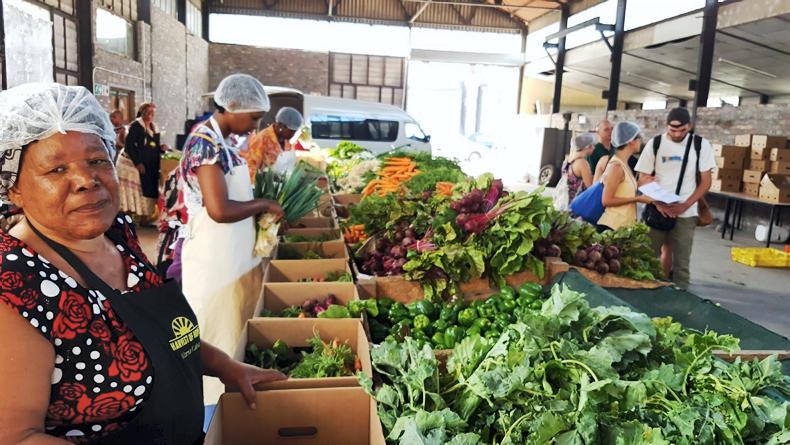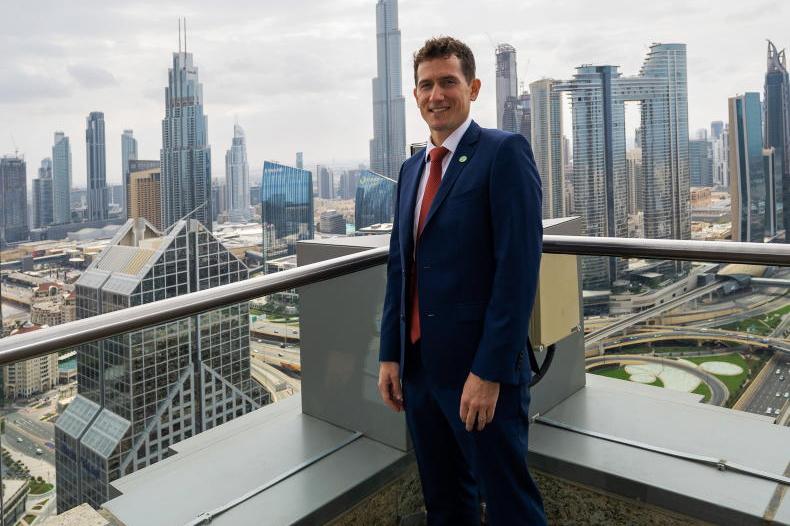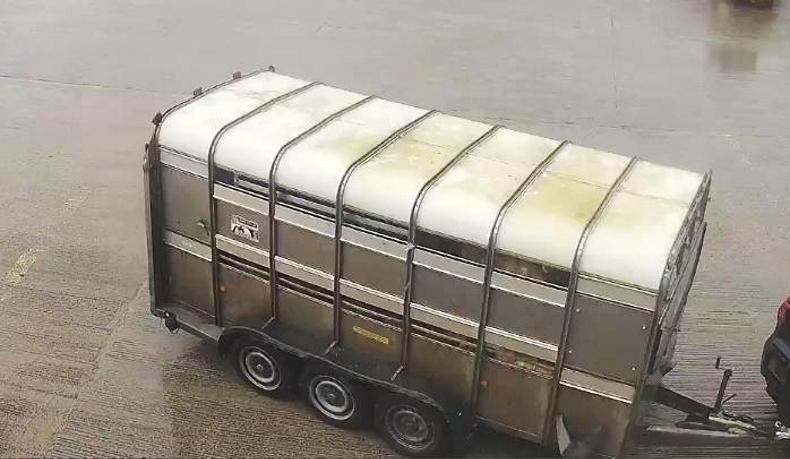One of the greatest achievements of mankind over the last 50 years has been our ability to dramatically reduce food insecurity in developing countries.
In 1970, one in three people in developing countries did not have enough food to eat every day to meet the requirement for a healthy lifestyle, according to the UN’s Food and Agriculture Organisation (FAO).
Despite rapidly growing populations in most developing countries in the last 50 years, food insecurity in these countries has steadily declined year after year. According to the FAO, the prevalence of undernourishment in developing countries has fallen to less than 13%.
As humans we are programmed with a negativity bias, which means we think about the negative far more than we recognise the positive.
In 2018, the Swedish statistician Hans Rosling published an excellent book called Factfulness: Ten Reasons We're Wrong About the World – and Why Things Are Better Than You Think, which, as the title suggests, is a book examining key statistics about human progress and why the world today is a much better place for almost all of mankind.
In the book, Rosling repeatedly highlights the enormous gains made by humans in terms of reducing food insecurity and malnourishment in developing countries. The eradication of food poverty is closely linked to improved health outcomes, increased life expectancy and increased social mobility.
Humankind
There’s no doubt it has its issues, but by any measure the development of the global food industry over the last 50 years in terms of its scale, reach and ability to provide highly nutritious food at affordable prices to people all over the world has been one of the greatest accomplishments of humankind.
This success story is built upon improved agricultural productivity in many developing countries, but also on the increase in global trade and the availability of high-quality, nutrient-dense food from developed countries at affordable prices for consumers in developing markets.
However, after decades of reducing world hunger, the trend of falling food insecurity has begun to reverse in the last number of years, according to the FAO.
In its latest report on food insecurity and global nutrition, the FAO states that more than 820m people in the world are still hungry today.

Street traders in South Africa.
“Hunger is rising in almost all sub-regions of Africa and, to a lesser extent, in Latin America and western Asia. We welcome the great progress seen in southern Asia in the last five years, but the prevalence of undernourishment in this sub-region is still the highest in Asia,” stated the report.
“The lack of regular access to nutritious and sufficient food that these people experience puts them at greater risk of malnutrition and poor health.
"Although primarily concentrated in low- and middle-income countries, moderate or severe food insecurity also affects 8% of the population in North America and Europe. In every continent, the prevalence rate is slightly higher among women than men,” it added.
Organic
It’s against this backdrop of rising food insecurity that we are seeing major policy shifts in Europe in terms of how we produce our food.
The recently published Farm to Fork strategy by the European Union has targeted that 25% of European farmland must be under organic production by 2030, while fertiliser usage is to be cut by 20%.
At the same time here in Ireland, many environmental activists are calling for a cull in the national cattle herd, while in the ongoing government formation talks the Green Party is pushing for an overhaul of Ireland’s food export model for beef and dairy in favour of increased domestic production of foods that we import from other parts of Europe, such as vegetables and cereals.
The logic behind these policy proposals is clear. We need to do more to protect our environment from the impact of food production, while also reducing methane emissions from livestock.
However, transitioning 25% of all the farms in Europe to organic is going to have major ramifications in terms of food production in Europe, which will have a knock-on impact for global security.
Remember, Europe currently exports €182bn of food to world markets, while importing €143bn of food products we do not produce here, meaning Europe is a net exporter of almost €40bn worth of food.
Since 2011, exports of food from Europe to world markets has been rising rapidly as more and more consumers around the world can afford European produce that is produced to the highest food safety and traceability standards in the world.
Ireland alone exports €13bn worth of food every year and produces enough beef and dairy to feed up to 40m people.
Privilege
While people have sincerely-held views about why we should reduce agricultural production in Ireland and Europe, it ignores the reality of rising food insecurity.
Food nationalism is all well and good for a country like Ireland or the world’s wealthiest consumers in Europe, but it ignores the plight of hundreds of millions of people around the world.
Calling for new policies that will lower food production in Europe is something that seems logical to only the most privileged and wealthy consumers on the planet.
It’s not so many generations ago since we had a famine in this country
For the billions of people living in developing countries, food is something they do not take for granted.
Cutting food production is a rich-world solution to the climate crisis that fundamentally ignores the ramifications it will have on global food security.
It’s not Ireland’s job to feed the world, but we have a natural advantage to produce meat and dairy in this country that feeds millions of people outside our shores.
We should not lose sight of how privileged we are in Europe to have readily-available, highly-nutritious and affordable food every day.
Lest we forget, it’s not so many generations ago since we had a famine in this country.
As such, Ireland should be able to empathise more than most developed countries with the importance of food security.
One of the greatest achievements of mankind over the last 50 years has been our ability to dramatically reduce food insecurity in developing countries.
In 1970, one in three people in developing countries did not have enough food to eat every day to meet the requirement for a healthy lifestyle, according to the UN’s Food and Agriculture Organisation (FAO).
Despite rapidly growing populations in most developing countries in the last 50 years, food insecurity in these countries has steadily declined year after year. According to the FAO, the prevalence of undernourishment in developing countries has fallen to less than 13%.
As humans we are programmed with a negativity bias, which means we think about the negative far more than we recognise the positive.
In 2018, the Swedish statistician Hans Rosling published an excellent book called Factfulness: Ten Reasons We're Wrong About the World – and Why Things Are Better Than You Think, which, as the title suggests, is a book examining key statistics about human progress and why the world today is a much better place for almost all of mankind.
In the book, Rosling repeatedly highlights the enormous gains made by humans in terms of reducing food insecurity and malnourishment in developing countries. The eradication of food poverty is closely linked to improved health outcomes, increased life expectancy and increased social mobility.
Humankind
There’s no doubt it has its issues, but by any measure the development of the global food industry over the last 50 years in terms of its scale, reach and ability to provide highly nutritious food at affordable prices to people all over the world has been one of the greatest accomplishments of humankind.
This success story is built upon improved agricultural productivity in many developing countries, but also on the increase in global trade and the availability of high-quality, nutrient-dense food from developed countries at affordable prices for consumers in developing markets.
However, after decades of reducing world hunger, the trend of falling food insecurity has begun to reverse in the last number of years, according to the FAO.
In its latest report on food insecurity and global nutrition, the FAO states that more than 820m people in the world are still hungry today.

Street traders in South Africa.
“Hunger is rising in almost all sub-regions of Africa and, to a lesser extent, in Latin America and western Asia. We welcome the great progress seen in southern Asia in the last five years, but the prevalence of undernourishment in this sub-region is still the highest in Asia,” stated the report.
“The lack of regular access to nutritious and sufficient food that these people experience puts them at greater risk of malnutrition and poor health.
"Although primarily concentrated in low- and middle-income countries, moderate or severe food insecurity also affects 8% of the population in North America and Europe. In every continent, the prevalence rate is slightly higher among women than men,” it added.
Organic
It’s against this backdrop of rising food insecurity that we are seeing major policy shifts in Europe in terms of how we produce our food.
The recently published Farm to Fork strategy by the European Union has targeted that 25% of European farmland must be under organic production by 2030, while fertiliser usage is to be cut by 20%.
At the same time here in Ireland, many environmental activists are calling for a cull in the national cattle herd, while in the ongoing government formation talks the Green Party is pushing for an overhaul of Ireland’s food export model for beef and dairy in favour of increased domestic production of foods that we import from other parts of Europe, such as vegetables and cereals.
The logic behind these policy proposals is clear. We need to do more to protect our environment from the impact of food production, while also reducing methane emissions from livestock.
However, transitioning 25% of all the farms in Europe to organic is going to have major ramifications in terms of food production in Europe, which will have a knock-on impact for global security.
Remember, Europe currently exports €182bn of food to world markets, while importing €143bn of food products we do not produce here, meaning Europe is a net exporter of almost €40bn worth of food.
Since 2011, exports of food from Europe to world markets has been rising rapidly as more and more consumers around the world can afford European produce that is produced to the highest food safety and traceability standards in the world.
Ireland alone exports €13bn worth of food every year and produces enough beef and dairy to feed up to 40m people.
Privilege
While people have sincerely-held views about why we should reduce agricultural production in Ireland and Europe, it ignores the reality of rising food insecurity.
Food nationalism is all well and good for a country like Ireland or the world’s wealthiest consumers in Europe, but it ignores the plight of hundreds of millions of people around the world.
Calling for new policies that will lower food production in Europe is something that seems logical to only the most privileged and wealthy consumers on the planet.
It’s not so many generations ago since we had a famine in this country
For the billions of people living in developing countries, food is something they do not take for granted.
Cutting food production is a rich-world solution to the climate crisis that fundamentally ignores the ramifications it will have on global food security.
It’s not Ireland’s job to feed the world, but we have a natural advantage to produce meat and dairy in this country that feeds millions of people outside our shores.
We should not lose sight of how privileged we are in Europe to have readily-available, highly-nutritious and affordable food every day.
Lest we forget, it’s not so many generations ago since we had a famine in this country.
As such, Ireland should be able to empathise more than most developed countries with the importance of food security.










SHARING OPTIONS